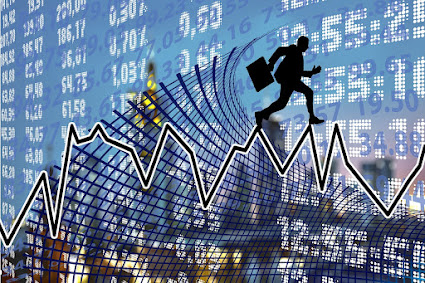The global economic crisis, often referred to as the Great Recession, began in 2007 and reached a peak in 2008-2009. It was the most severe worldwide economic crisis since the Great Depression of the 1930s. The crisis led to massive financial and economic disruptions around the world, with a wide range of causes and effects that continue to be felt even today. The origins of the global economic crisis are complex and multifaceted, involving a combination of risky financial practices, regulatory failures, and economic imbalances. One of the key triggers was the collapse of the housing bubble in the United States, which had been fueled by a period of low interest rates and lax lending standards. As housing prices fell, a significant number of homeowners found themselves with mortgages that exceeded the value of their homes, leading to a wave of foreclosures. This in turn led to significant losses for banks and financial institutions that had heavily invested in mortgage-backed securities.
The crisis was exacerbated by the interconnectedness of global financial markets. Many banks and financial institutions around the world had invested in complex financial products tied to the U.S. housing market, and as the value of these assets plummeted, it led to widespread losses and a loss of confidence in the financial system. Major financial institutions such as Lehman Brothers collapsed, and others were forced to seek emergency assistance to avoid bankruptcy. Governments and central banks around the world responded with unprecedented measures to stabilize the financial system and stimulate economic growth. In the United States, the Federal Reserve slashed interest rates and implemented a range of emergency lending programs. The U.S. government also passed the Troubled Asset Relief Program (TARP), which provided hundreds of billions of dollars to stabilize banks and other financial institutions. Similar measures were taken by central banks and governments in other countries.
Despite these efforts, the global economic crisis led to a severe economic downturn. Unemployment rates soared, with millions of people losing their jobs and homes. Economic output contracted sharply in many countries, leading to a significant decline in global trade and investment. The crisis also had profound social and political consequences. Many people who lost their jobs and homes faced significant financial hardship, leading to a rise in poverty and inequality. The crisis also led to widespread disillusionment with the financial system and the government, fueling political movements and protests in many countries.
One of the most significant impacts of the global economic crisis was the sovereign debt crisis in the Eurozone. Countries such as Greece, Ireland, Portugal, and Spain faced severe financial difficulties, as the economic downturn led to a sharp increase in their budget deficits and public debt. The European Union and the International Monetary Fund provided emergency financial assistance to these countries, but the crisis led to significant economic and political turmoil in the region. The global economic crisis also led to significant changes in economic policy and regulation. In the United States, the Dodd-Frank Wall Street Reform and Consumer Protection Act was passed in 2010, introducing a range of measures to increase transparency and accountability in the financial system. Similar regulatory reforms were implemented in other countries.
The crisis also led to a reevaluation of economic theories and policies. The economic downturn challenged the prevailing consensus on the benefits of deregulation and the efficiency of financial markets. Many economists and policymakers argued for a greater role for government in regulating the financial system and stabilizing the economy. The recovery from the global economic crisis has been uneven and incomplete. While some countries have returned to pre-crisis levels of economic growth and employment, others continue to face significant challenges. In many advanced economies, the crisis has led to a prolonged period of low growth, high unemployment, and rising inequality. The crisis also had a significant impact on emerging and developing economies. Many of these countries experienced a sharp decline in export demand and investment, leading to a significant economic downturn. However, some emerging economies, particularly in Asia, were able to recover more quickly, thanks to strong domestic demand and effective policy responses.
The global economic crisis has also had long-term implications for the global economy. The crisis exposed significant vulnerabilities and imbalances in the global financial system, leading to a greater emphasis on financial stability and risk management. The crisis also highlighted the need for greater international cooperation and coordination in economic policy. In conclusion, the global economic crisis was a severe and complex event that had profound and far-reaching impacts on the global economy. The crisis was caused by a combination of risky financial practices, regulatory failures, and economic imbalances. The response to the crisis involved unprecedented measures by governments and central banks around the world to stabilize the financial system and stimulate economic growth. Despite these efforts, the crisis led to a severe economic downturn, with significant social and political consequences. The crisis also led to significant changes in economic policy and regulation, and has had long-term implications for the global economy. The recovery from the crisis has been uneven and incomplete, and many countries continue to face significant challenges. The global economic crisis serves as a reminder of the importance of sound economic policy and regulation, and the need for greater international cooperation and coordination in economic policy.



Post a Comment